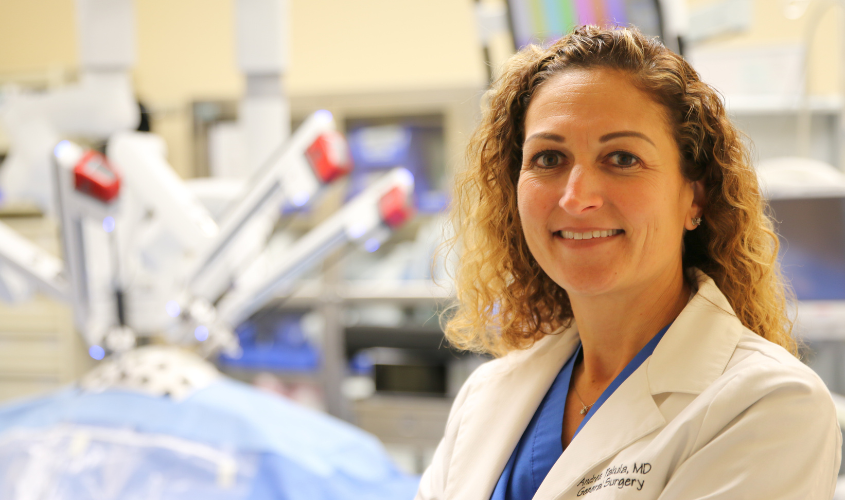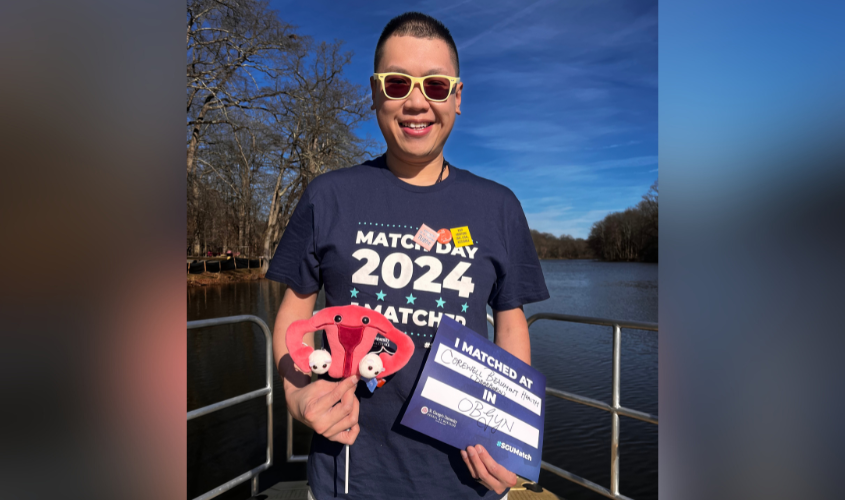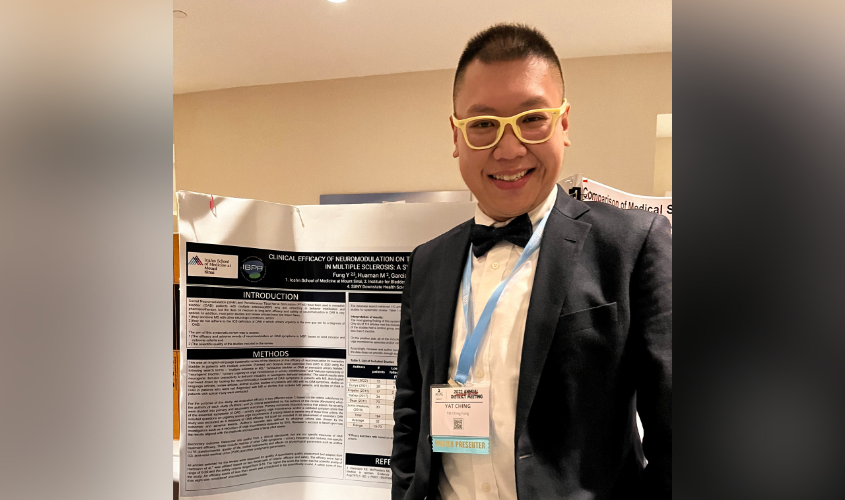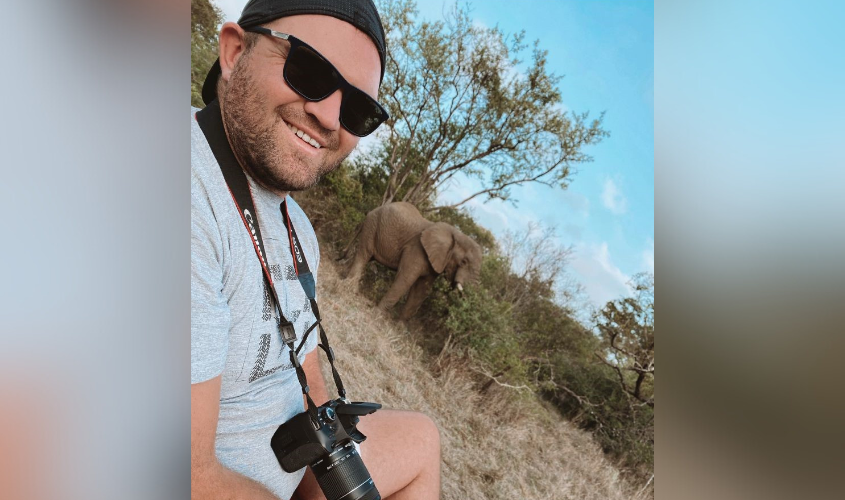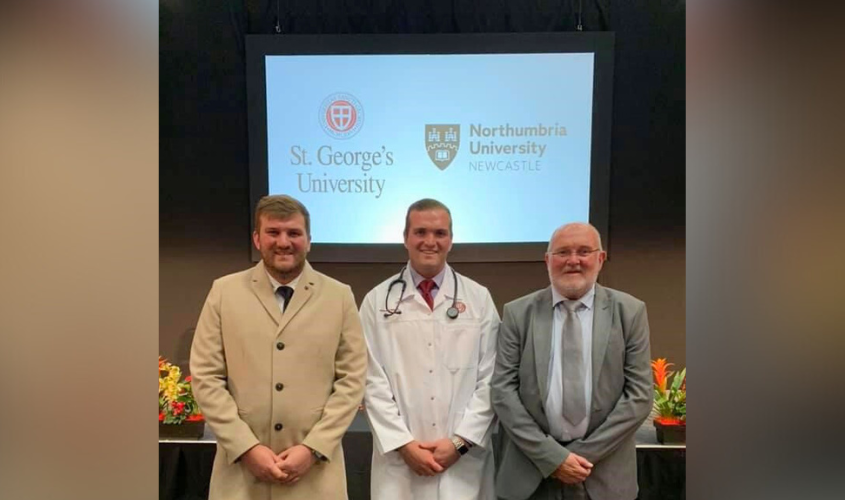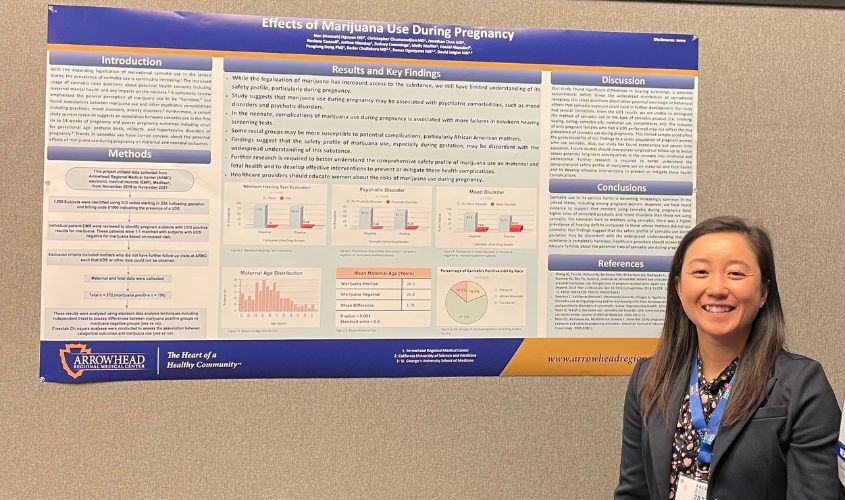Otis Zeon, MD
Otis Zeon, MD ’17, grew up in a refugee camp in West Africa where life was marked by famine, disease, and drought. From an early age, he had a fascination with science. In the camp, traveling doctors and medical groups from different parts of the world would often visit to provide medical care and offer education. Witnessing their work sparked his interest in medicine, and his passion grew from that point onward.
The doctors who provided medical care in the refugee camp were mostly family medicine doctors. After learning more about this field, Dr. Zeon wholeheartedly believed that primary care providers, particularly family medicine physicians, hold the keys to community health improvements, education, and healthcare policymaking. By focusing on family medicine, Dr. Zeon aims to make a significant impact on the overall well-being of communities.
After 10 years in the refugee camp, Dr. Zeon and his family relocated to Minnesota in the US, where he could further his passion for helping others through medicine. SGU News sat down with Dr. Zeon to learn more about his journey and how SGU helped him reach his goals.
SGU: What did it feel like when you matched into residency?
Dr. Zeon: I had a non-traditional path to medical school and residency. Initially, I did not match into a residency program. After working on my application, I secured my top choice in residency. I am happy to be setting an example for my family, my community, and, most importantly, my children.
SGU: What was your experience during the match process? How did SGU’s Office of Career Guidance (OCG) help you during that time?
Dr. Zeon: SGU’s Office of Career Guidance (OCG) provided me with several options for alternative career paths in case I did not secure a residency match. They also helped me identify and address gaps in my application, strengthening it to make me a more competitive candidate. I completed my MBA in multi-sector healthcare in December 2023, and two months later, I matched into my top choice residency program.
SGU: Where did you intend to become a doctor? How did SGU contribute to your success?
Dr. Zeon: I have always wanted to live in California, and I am blessed to have matched in a city like Los Angeles and to be part of this community. SGU’s advice helped me improve my application. I accepted a teaching position in Los Angeles and eventually matched in the affiliated family medicine program. Without passing all my step exams, improving my application, it wouldn’t have been possible for me to match. Thanks to SGU’s support and guidance, I am now living my dream, making a difference in my community, and inspiring others to pursue their own paths in medicine. I also plan to spend part of my time practicing medicine in less developed countries to pay it forward, ensuring that others have access to the care and opportunities that have been so transformative in my own life.
SGU: What are your long-term career aspirations within the field of medicine?
Dr. Zeon: In the long term, I plan on practicing medicine in my community here in Los Angeles and teaching or precepting the next generation of medical students. I would also like to contribute to health IT by developing user-friendly healthcare products, software, hardware, and education programs.
SGU: What is your advice to students to maintain a healthy mental well-being?
Dr. Zeon: For any young person aspiring to achieve something great, temporary sacrifices and absolute focus are essential. There will always be time to enjoy other aspects of life, especially in a rewarding field like medicine. The best thing you can do as a student is maintain absolute focus. Minimize distractions and find a study companion with the same level of focus.
SGU: What was the highlight of your experience living in Grenada during your medical education?
Dr. Zeon: Apart from the fact that the university is built like a resort, living on the island put me in the best shape of my life, and my mind was very sharp. I especially enjoyed the barbecues and mangos. The island provides a healthy isolation from distractions, allowing you to focus on pursuing your education.
SGU: What advice would you offer to aspiring medical students from your home country considering a similar path?
Dr. Zeon: I have already advised several students who are currently at SGU. SGU prepared me well, so I would advise staying focused and absorbing as much knowledge as possible. Finish your time on the island strong and perform well on your board exams. Finally, during your rotations, stick to one general location and truly get to know the team, the program director, and other attendings who can write you strong letters of recommendation for residency.
